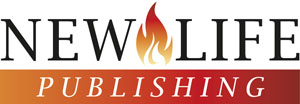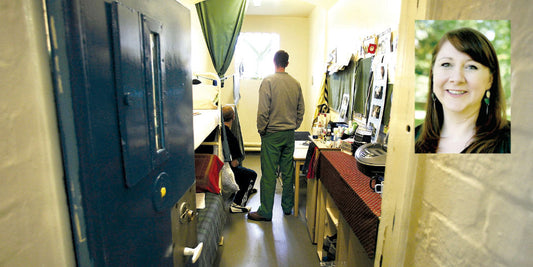
John Stott – a powerful intellectual who could communicate well
Share
During the ‘Swinging 60s’ one of the most influential voices in British evangelical circles was the noted speaker and author John RW Stott, who encouraged believers at a time when the Christian faith was under severe attack from liberal theology.
David Littlewood looks at the life of this remarkable servant of God.
John Stott was born in April 1921 into an upper middle class family. Like most boys of his social class, he attended a ‘prep’ boarding school before winning a scholarship to the prestigious Rugby public school. Rugby had a very formalised version of the Christian religion, a legacy of Rev Thomas Arnold, but Stott was spiritually challenged by the witness of a slightly older boy named John Bridger, who invited him to a Christian meeting group.
It was through this meeting, when Stott was 17, that he met EHJ Nash, a remarkable Anglican clergyman who was working with Scripture Union with a view to reaching public schoolboys for Christ. Following Nash’s address, Stott had a conversation with the cleric, the result of which was that the boy accepted Christ as his Saviour. Although there was no overt emotional experience, Stott felt the peace of God and a joy in his heart which was to remain throughout his life.
Stott remained in touch with Nash, attending the Scripture Union camps Nash ran, and taking other boys with him. After the outbreak of war, John went to Cambridge University in 1940, throwing himself into the work of the Christian Union and becoming Nash’s right-hand man in the so-called ‘Bash’ camps. Having graduated in French and German, and feeling a call to ordained ministry, Stott then switched to theology.
Stott’s call to the ministry – together with his pacifism which kept him out of the war – was opposed by his father, a soldier in both wars, who had plans for his gifted son to enter the diplomatic service. However, in spite of a temporary estrangement from his father, John began reading theology at Ridley Hall, Cambridge, in 1942.
Nearly 80 years on, it is difficult for us to imagine the challenges faced by a Bible-believing student in a day when theological courses were almost entirely dominated by liberal scepticism. Today students have a plethora of academic works by evangelical scholars defending the authority of Scripture, but there was little of that in Stott’s day. “During my three years of reading theology at Cambridge,” he later wrote, “I wrestled painfully with the challenges of liberalism.”
Of course, to a man of Stott’s academic ability and intellectual honesty there was no circumventing the issues – they had to be faced head on. To him, any stifling of the mind in the search for truth was an anathema. Although he believed – as did Jesus – that the mind had to submit to the authority of the Scriptures, he carefully distanced himself from an anti-intellectual ‘fundamentalism’ that stood for, “the bigoted rejection of all biblical criticism, a mechanical view of inspiration and an excessively literal interpretation of Scripture.”
DEFENDING BILLY GRAHAM
It was this thinking type of Christianity that later enabled Stott to defend Billy Graham against the attacks from liberals within his own church, while warning a new generation of evangelicals against what he called, “the misery and menace of mindless Christianity.” In his search for biblical truth his model appears to have been Charles Simeon1, who rejected theological systematisers in favour of allowing the Scriptures to speak for themselves.
Having graduated with a ‘first’ in theology, Stott was ordained as a deacon in 1945 and, at the invitation of the Rector, Harold Earnshaw-Smith, became a curate at All Souls Church, Langham Place, the church in which he had grown up and where he would be destined to spend the rest of his life.
At the time of Stott’s ordination, evangelicals within the Church of England were described as a ‘cowed, beaten and depressed group’, a faithful remnant destined to remain on the margins of life within the church. They were also often backward-looking and riddled by stifling rules and regulations. Coming into this, John Stott would be a considerable force for change.
As curate Stott, along with regular preaching, was involved in door-to-door visiting and young people’s work. The latter included taking the youngsters – many of whom were from very different backgrounds – away to camp. However, at the end of Stott’s first year, Earnshaw-Smith, then only 55, suffered a heart attack from which he never really recovered, leaving much of the leadership of the church to his curate.
In 1950 Earnshaw-Smith died, and at the request of the church, John Stott was made rector of All Souls at the frighteningly early age (by Anglican standards) of 29. Although he was never to undertake a ‘vow’ of celibacy, Stott remained unmarried throughout his life, giving himself to speaking, writing and travelling to an extent that would have been impossible for a man with a family. Although not unattracted to the opposite sex, Stott felt his calling was to sacrifice the pleasures of married life for the sake of the kingdom of God. “It has been lonely, in some ways,” he said, “but I am grateful for a very large circle of friends.”

Although Stott is chiefly remembered today as a Bible teacher, it is important to realise his role in evangelism, which included a regular ‘guest service’ at the church. He also opened the ‘Clubhouse’ to reach the poorer areas of the parish as well as hosting meetings for the doctors in nearby Harley Street. In addition, he was heavily involved in hosting Billy Graham’s mission in Harringay in 1954, which gave evangelicalism in Britain a huge boost.
With his keen intellect, Stott became a natural to speak at university student evangelistic missions, where his clear presentation of the Christian faith at universities such as Oxford, Cambridge and Durham, as well as in the United States, South Africa and Australia, made a huge impact over the course of 25 years. His uncompromising presentation of the gospel not only helped many students to find Christ, but also gave a generation of Christians confidence in the reasonableness of the Christian faith.
SIMPLE AND STRAIGHTFORWARD
It was to the mind that Stott made his appeal in his preaching and ministry. Not that he was deliberately intellectual in his approach – rather the opposite. As a great teacher he had the ability to make the difficult appear simple and straightforward! But he believed that, as we are to worship God with our mind, the Christian faith should be reasoned and reasonable.
However, the human mind must be subservient to the inspiration of the Scriptures, and Stott believed that as Christians we must accept the Bible as the inspired Word of God simply because Jesus himself did just that. “We shall not,” he said, “behave as if the New Testament were a collection of fallible opinions by fallible human beings. We shall rather put ourselves humbly under its authority, and listen attentively to what God has to say to us through his Word.” Coming from a highly intellectual man with a ‘first’ in theology, these words had a unique authority for generations of students, giving them confidence to stand out against the liberal scholarship that was destroying the church from the inside.
Central to Stott’s Bible-centred vision was his preaching. “It stands to reason,” he said, “that every recovery of confidence in the Word of God, and so in a living God who spoke and speaks, however this truth may be defined, is bound to result in a recovery of preaching.”
At a time when evangelical preaching tended to be strong on exhortation but weak on theological content, Stott put the emphasis on expository preaching. There were no histrionics and rhetorical flourishes, but generations found his systematic exposition of the Word of God mesmerising and well as highly challenging and informative. Much of his preaching and teaching found its way into the more than 50 books Stott wrote during a busy life.
Discipline was a feature of his life, rising at 5am each day and spending and hour in Bible reading and prayer before getting down to serious intercession. He was also disciplined about what he called ‘Q’ days which were quiet days away from the parish. His hobby was bird-watching, which, he reckoned, was an antidote to burnout: “I don’t think too many birdwatchers get a nervous breakdown!”
There were significant points of evangelical doctrine and practice which Stott took a stand over during his ministry. The first was concerning the substitutionary atonement of Christ, which reached its ultimate expression in his magnus opus, ‘The Cross of Christ’. The nature of the atonement had been one of the fault lines between evangelicals and liberals, and Stott had no problem in putting the traditional evangelical doctrine of the self-substitution of God in Christ central to his teaching on the cross.
Without Jesus dying in our place, according to Stott, there could be no propitiation, redemption, justification or reconciliation: “All four images plainly teach that God’s saving work was achieved through the blood-shedding, that is the substitutionary sacrifice of Christ... Since Christ’s death is a symbol of his life laid down in violent death, it is also playing in each of the other four images that he died in our place as our substitute.”
Another area where Stott was widely influential was in his addresses to the Keswick convention. Whereas the traditional Keswick teaching had emphasised ‘holiness by faith’ as an experience, Stott took a very different line in which he rejected the central tenets of Keswick teaching, seeing sanctification as a lifelong process, dependent on the mind and the will of the renewed believer. As believers we were free from the dominion of sin but not its influence. Hence, mortification of the flesh did not involve a single experience but rather an act of the will and rigorous discipleship.
HIGHLY CONTROVERSIAL
This of course was highly controversial, and did not sit well with some other regular Keswick speakers like Alan Redpath, who declared, “This is not Keswick!” However, Stott’s teaching generated healthy debate and shifted the emphasis in a direction favoured by many evangelicals.
Two other points of high controversy arose during Stott’s ministry. The first was the rise of the charismatic movement. Many evangelicals were receiving the baptism in the Holy Spirit together with speaking in tongues. Although not all shared the traditional Pentecostal understanding, there was no doubt that, with the new freedom this experience was bringing, there was danger of division. This was emphasised to John Stott when his own curate, Michael Harper1, experienced the baptism in the Holy Spirit, not in a meeting, but during his own private meditation.
Although his fellow evangelical, Martyn Lloyd-Jones, basically accepted the experience (though not necessarily speaking in tongues), Stott was considerably more cautious. Although a believer in the importance of the Holy Spirit, his logical mind struggled to accept what he saw to be an illogical experience. Indeed as he himself once wrote: “Our temperament has more influence on our theology than we often realise or concede.”
The result was a paper given in 1964 to evangelical clergy and later printed as a booklet called ‘Baptism and Fullness’, in which Stott argued that the baptism in the Spirit was received at conversion and not as a second, subsequent experience. Stott later did revise the booklet in which he confessed “having been too negative towards the charismatic movement” and appealing for “fruitful fellowship”.
Another flashpoint occurred in 1966 when Lloyd-Jones gave the opening address of the Second National Assembly of Evangelicals, under the auspices of the Evangelical Alliance. In his address Lloyd-Jones called on all evangelicals, in the wake of liberalism so prevalent in the existing denominations, to leave their denominations and join together in a fellowship of evangelical churches.
It was felt by some that Lloyd-Jones exceeded his brief by making his address into a passionate appeal and, as chairman, Stott felt obliged not just to give thanks (as was customary) but to give a reply, as he feared some of the young men present might be going to write their resignations in the heat of the moment! The dispute created a breach between Anglican and free church evangelicals in the UK that has taken a generation to heal, even though Stott visited Lloyd-Jones the next week to repair any personal grievances.
Just who was right and who was wrong is a matter of opinion, but one problem was that, for all his eloquence, although Lloyd-Jones made it clear he wanted evangelicals to come out, he was not really clear what he wanted them to come in to. In addition, it is a fact that since then evangelicals have been able to flourish in the Church of England. In fact it would not be too strong to say that without the evangelicals the Church of England might not now exist!
John Stott’s other commitments remained endless, including helping evangelicals come to terms with living in a modern world and making a contribution to a secular society while remaining Christian disciples. He was a founding trustee of the Shaftesbury Project, an evangelical think tank on social issues, and the chair of the evangelical conference on social ethics. His book, ‘Issues Facing Christians Today’, summed up his teaching on a wide range of important issues, rarely addressed in evangelical circles.
He was also very keen that Christians should not leave the so-called ‘social gospel’ to either the liberal wing of the church or the secular world, and was president of Tear Fund, the evangelical relief agency. Although evangelism is the first priority for the church, social responsibility follows behind it. Jesus’ great commission included social as well as evangelistic responsibilities for the church.
When the then Bishop of Durham, David Jenkins, reinterpreted the resurrection as a series of experiences involving the enduring personality of Jesus and poured doubt on the historicity of the virgin birth, Stott met with him privately and refuted him publicly. In addition to an article in ‘The Times’, Stott developed his thesis into a book, ‘The Authentic Jesus’, in 1985.
WORLDWIDE MINISTRY
In 1970 Stott’s wider role in the church caused him to step down from the leadership of All Souls in favour of Michael Baughen, and in 1975 he became rector emeritus, while continuing his worldwide ministry. Retirement had no place in his mind as long as he had health and strength.
One of the most lasting contributions he made was in the ‘Bible Speaks Today’ series of expositional commentaries, published by IVP, which he edited in addition to contributing around a dozen volumes himself, all written with his usual clear expository style. As his books sold in increasing numbers, the Evangelical Literature Trust was born in 1971, to channel royalties from Stott’s books into providing free or subsidised books to needy pastors around the world.
One late area of controversy which arose in 1986 was in an interview with the liberal David Edwards, when Stott confessed he did not necessarily believe in endless torment in hell for unbelievers. Although for some this put Stott outside traditional evangelicalism, others were more open to whether the ultimate annihilation of the wicked should at least be considered as a legitimate biblically-based alternative.
In his 70s Stott suffered embolisms which damaged his eyes and heart, and which meant he could no longer drive. However, he continued visiting many countries, including China, seeking to encourage Christian leadership throughout the world. In 2006 he was made a CBE by the Queen ‘for services to Christian scholarship and to the Christian world’. The next year his age finally caught up with him and at 86 he stepped back from active ministry to live in a retirement home.
John Stott died on 27 July 2011 aged 90. On hearing of his death, Billy Graham said, “The evangelical world has lost one of its greatest spokesmen, and I have lost one of my close personal friends and advisors.”
His secretary, Frances Whitehead, who knew him better than anyone else, said, “There was no dichotomy between faith and practice. He lived to serve and please God, to bring glory to his name, to boast in nothing but the cross of Christ. He rarely, if ever, talked about himself.”




